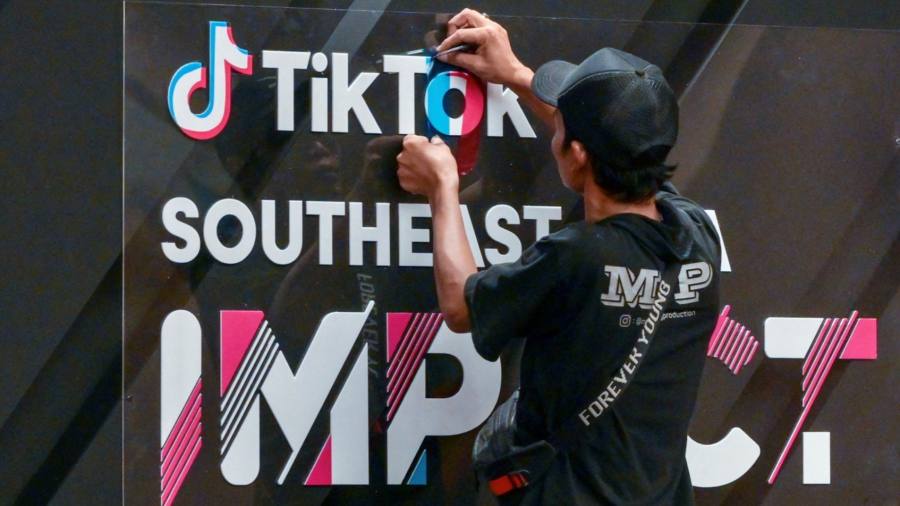
Receive free TikTok Inc updates
We’ll send you a myFT Daily Digest email rounding up the latest TikTok Inc news every morning.
Indonesia has threatened to curb TikTok’s shopping platform, months after the Chinese-owned viral video app said it would invest billions of dollars in the fast-growing south-east Asian country.
The minister of co-operatives and small and medium enterprises, Teten Masduk, on Wednesday accused TikTok Shop of “monopolistic” business practices at a high-level meeting of industry and investment officials in the House of Representatives, according to a government statement.
Teten said Indonesia should “reject and prohibit” the viral short-video app from combining online shopping with its social media platform, and follow the lead of other countries including the US and India in limiting the company’s activities.
The success of the ecommerce unit is crucial if TikTok is to justify its $300bn valuation, which makes it among the world’s most highly valued private companies. The export of the Chinese group’s shopping model overseas has been beset by problems and it has already been forced to restructure the business.
The group’s owner, Beijing-based ByteDance, launched TikTok Shop in Asia in 2021 and it quickly became a force in several south-east Asian countries, particularly Indonesia and the Philippines. Brands and influencers broadcast live and sell products through a clickable orange basket on the screen of the viral short-video app.
Teten said online shopping was “influenced by conversations on social media” and added that TikTok had its own logistics and payments teams. “This is called a monopoly,” he said.
However, TikTok has not yet been granted an Indonesian payments licence; it currently relies on third-party payments services providers in the country. A licence would allow it to benefit from transaction fees and compete better with other players with payments services.
The minister said the US and India had banned TikTok from simultaneously running its video app and social commerce. However, the US has only threatened to ban the company while India instituted an overall ban in 2020.
Indonesia’s change in attitude towards TikTok, which still requires support from other parts of the government — including the communication and trade ministers — raises the spectre of more political pushback for the company. The other ministries did not respond to a request for comment.
South-east Asia, where TikTok has more than 300mn active monthly users, was one of the company’s most promising growth markets. More than a third of those users are in Indonesia alone and TikTok chief executive Shou Zi Chew told the government in June the company would spend $10bn investing in the country over the next five years.
TikTok has already been in Jakarta’s crosshairs this year. The rapid spread of “online begging” on TikTok — videos of elderly women pouring dirty river water on themselves while sobbing, in exchange for gifts from viewers that could be converted to cash — prompted a swift government rebuke.
The company has been in early stage talks to obtain a payments licence in the country, it told Reuters in August.
In addition to limiting TikTok’s ability to use both its social media app and TikTok Shop, Teten said that the government needed to regulate cross-border commerce so that domestic small and medium-sized businesses could compete in the Indonesian digital market.
TikTok did not immediately respond to a request for comment.